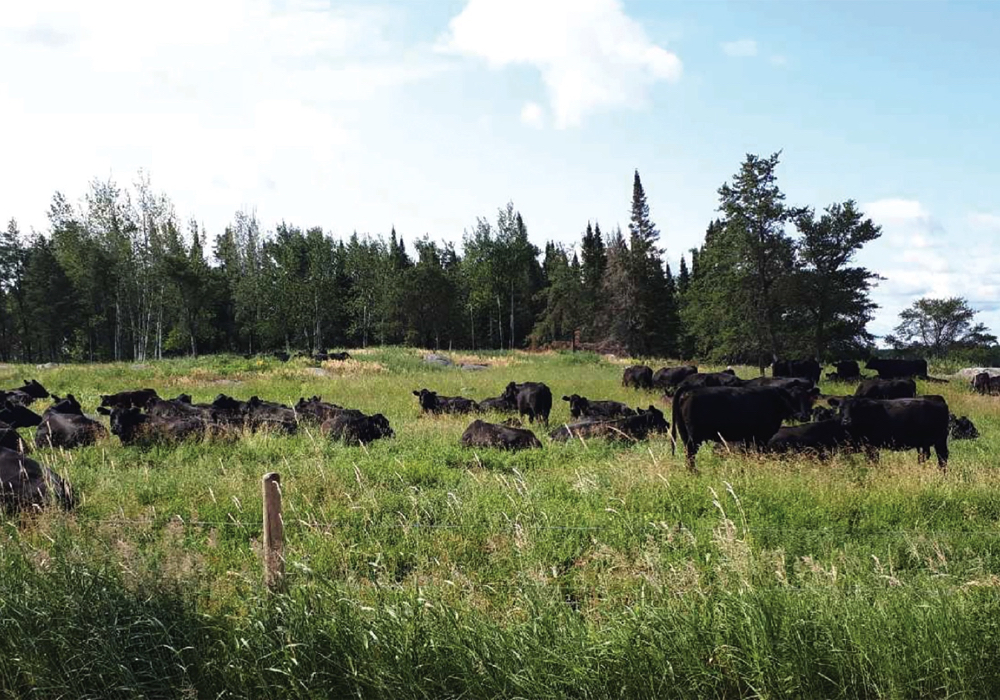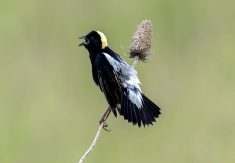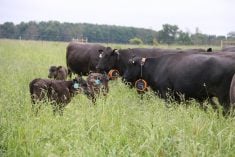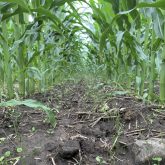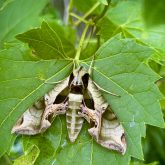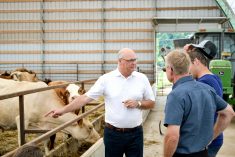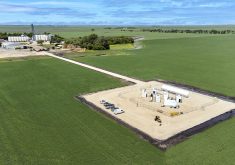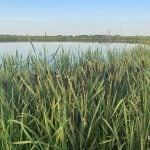Beef Farmers of Ontario hands out two awards for pasture and environmental management — and both usually end up with similarities and that was the case in 2020.
Both the Mapleseed Pasture Award winner and The Environmental Stewardship Award winners manage large numbers of cows on pasture and have made strategic decisions to intensively manage their pasture for higher cow gain and lower environmental impact.
Why it matters: Intensive pasture management can make better use of land resources for farmers.
Jeff Pollard, who farms with his wife Kristina near Stratton in the Rainy River District, was the winner of the Mapleseed Pasture Award. He spoke about his farm at the Beef Farmers of Ontario annual meeting.
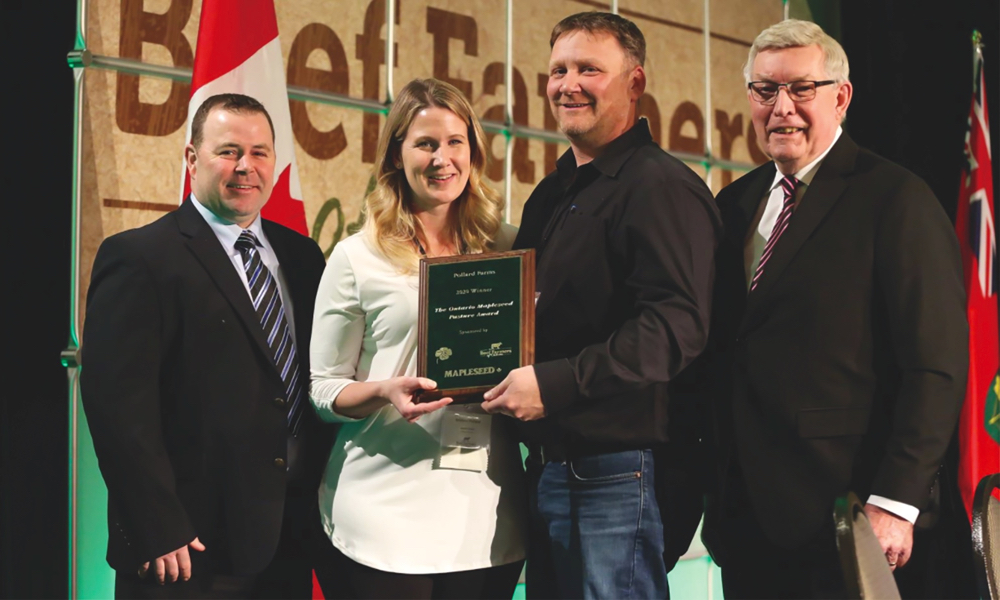
He pastures 450 head through the winter and 650 through the summer in an extensive system of fencing and water lines, managing large numbers of cattle sustainably.
Pollard owns 1,500 acres, 900 acres of which are grazed. About 820 acres are rotationally grazed and 80 are continuously grazed. Cows are moved daily on pasture with lots of native species.
He starts grazing on May 10 and his cows calve on grass. The cows and calves graze for the summer in 50 permanent pastures, surrounded by 20 kilometres of fence.
He’s worked to build fences that keep cattle out of woodlots and creeks, although he does use some bush areas for the cows, especially in July to get some shade and help with fly management.
Read Also
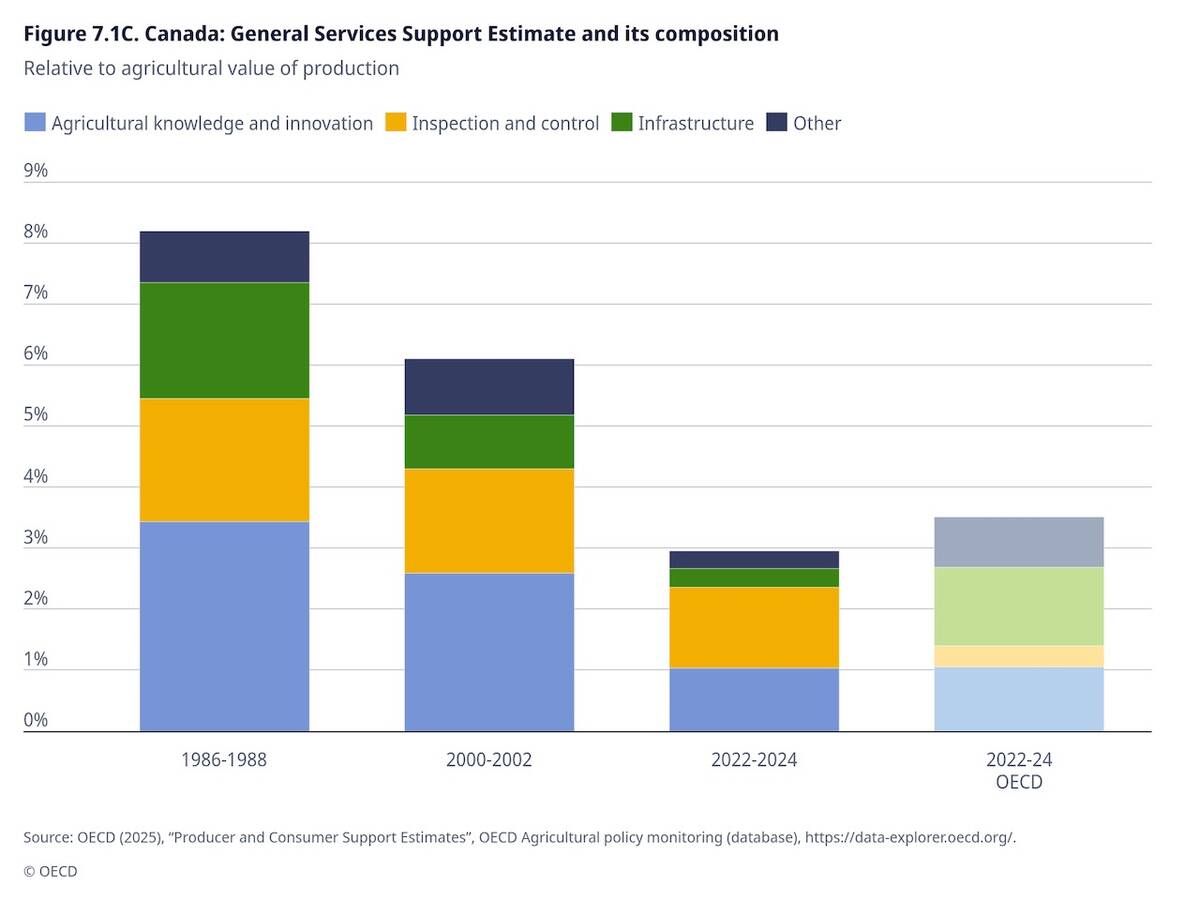
OECD lauds Canada’s low farm subsidies, criticizes supply management
The Organization for Economic Co-operation and Development lauded Canada’s low farm subsidies, criticized supply management in its global survey of farm support programs.
Ten years ago, cattle were fenced out of creek bottoms of the Cameron Creek that runs through their property. They also planted 10,000 trees.
The cattle drink from wells, not dugouts or streams, and the 50 pastures are fed by 10,000 feet of water line.
“They always have fresh water,” he says.
When the pasture runs out, he uses extended grazing, putting the cattle onto oats.
Come November, pasture growth stops, but there’s enough stockpiled for grazing for a while. In mid-December the cattle are put into a feed yard for the winter.
The Mapleseed Award is provided by Mapleseed, the Ontario Forage Council and Beef Farmers of Ontario.
Paul De Jong was the winner of The Environmental Stewardship Award for 2020.
De Jong farms in the Temiskaming District and focuses on farming with a commitment to the environment at the farm, Charlton Angus Cattle Company.
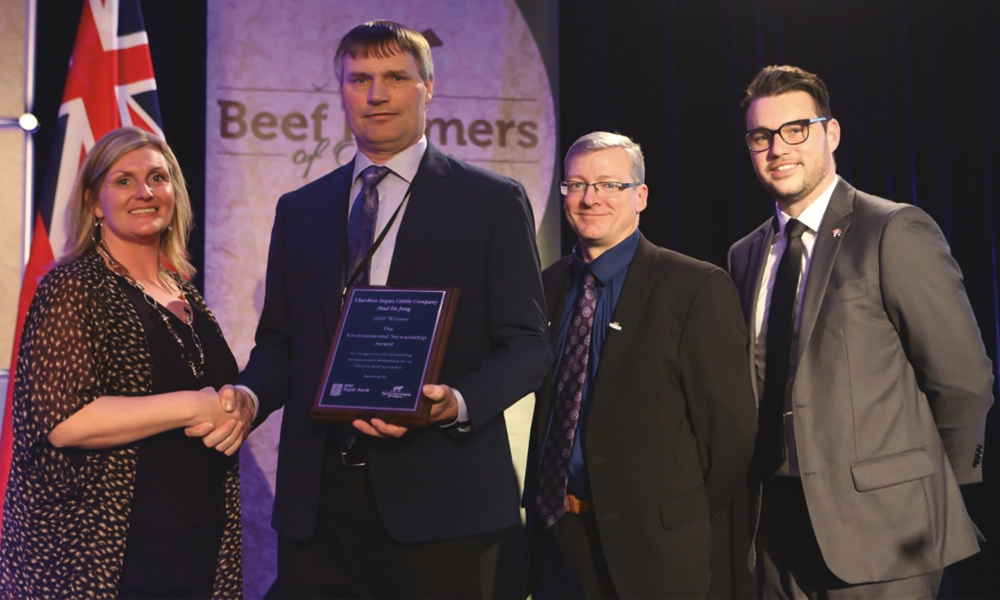
He said in accepting the award at the beef farmers annual meeting, that making the right environmental decision can sometimes have a cost.
He raises 150 cows on the farm, where he works to create balance among the air, water, food and shelter needed by the soil, plants, cattle and humans who live at the farm.
They have worked to fence off wetlands and riverbeds and provide fresh water for the cattle.
Woodlands are also fenced off.
He pays careful attention to nutrient management in tilled fields and uses a Curse Buster tillage implement.
The goal is to make sure nutrients are cycled by healthy, growing roots.


